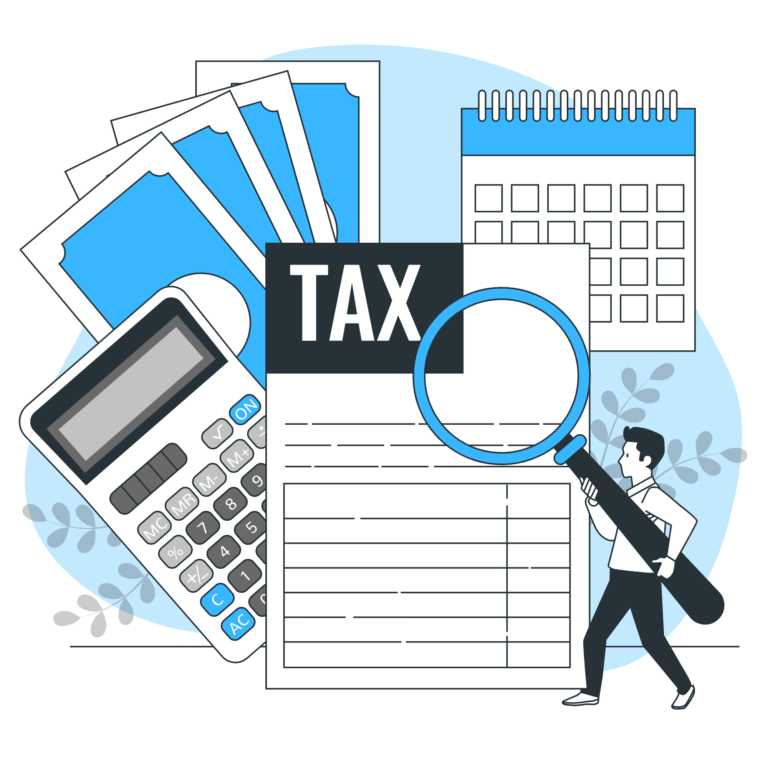Withholding tax (WH) in Switzerland
Withholding tax is a tax levied at source on income from movable capital (e.g. interest, dividends, lottery winnings), life annuities, pensions and insurance benefits lottery winnings. It is levied exclusively by the Confederation.
Its purpose is to combat tax evasion. By correctly declaring their income through their tax return, taxpayers domiciled in Switzerland will benefit from a tax credit for the withholding tax withheld.
Foreign nationals may request a refund of withholding tax in accordance with the double taxation agreements (DTAs) signed by Switzerland. If no DTA has been signed with the foreign taxpayer's country of residence, payment of the withholding tax will be final and no refund of the withholding tax will be possible.
Withholding tax rate
Capitaux mobiliers : 35%
Rentes viagères et pensions : 15%
Prestations d’assurances : 8%
On what and when should withholding tax be deducted?
Withholding tax is deducted by the debtor of the benefit, by debtor of the benefit we mean: the company paying a dividend, the bank paying interest, the insurer, the organiser of the lottery game.
It is therefore up to the debtor of the benefit to withhold the withholding tax and the taxpayer to bear the tax burden. Any agreement to the contrary is null and void.
Example:
Mr Parada owns a company. He makes good profits and decides the following year to pay himself part of the profits made in previous years. He therefore decides to pay himself CHF 100k as a dividend. The company therefore owes him CHF 100k.
As the company is the debtor of the benefit, it must withhold withholding tax on the CHF 100k.
It will therefore transfer to Mr Parada the sum of CHF 65k, which represents 65%.
And simultaneously transfer 35k which represents 35% to the Federal Tax Administration within 30 days in order to fulfil its tax obligation.
Declaration procedure
The declaration procedure is possible in certain cases for :
- Insurance benefits
- Income from transferable securities
- Gains in kind from gambling
The declaration procedure enables the beneficiary company to meet its tax obligations without any movement of funds by declaring the beneficiaries.
How do I declare dividends?
Distribution of dividends to shareholders
Companies wishing to pay a dividend to their shareholders must do so once the decision has been taken by the General Meeting.
- 1. Décider de la date d’échéance du dividende selon PV de l’assemblée générale
- 2. Remplir et préparer le formulaire 103 pour les SA ou 110 pour les Sàrl dans les 30 jours
- 3. Virer l’impôt anticipé retenu (35%) à l’AFC dans les 30 jours qui suivent l’échéance du dividende
- 4. Send the forms to the FTA
In the event of delay in the submission of forms or payment of advance tax, interest on arrears of 5% begins to accrue from the 30th day.
Dividend distribution within a group
From 01.01.2023, the direct shareholding in a company to benefit from the declaration procedure will be reduced from 20% to 10%. Art.26a al.1 OIA
The declaration procedure within a group replaces the aforementioned procedure, allowing tax liability to be discharged without cash movements, by means of a declaration.
This procedure may be applied where a 10% shareholding is held directly by the company and the company receiving the dividend is actually entitled to a refund of withholding tax.
- Le nom des bénéficiaires de la prestation et le lieu de leur domicile ou de leur séjour à l’échéance de la prestation
- Le genre et le montant brut de la prestation revenant à chacun des bénéficiaires, la date d’échéance et, éventuellement, la période à laquelle elle se rapporte
- Gains in kind from gambling
The FTA then takes a decision and communicates it to the taxpayer.
Note that the declaration does not release the company from its obligation to ensure that the beneficiaries meet the conditions for reimbursement of the withholding tax.
Reimbursement of withholding tax
General conditions for entitlement to reimbursement
- At the time of maturity of the benefit paid, the taxpayer had the right of enjoyment of the object(s) that produced the taxable yield.
- Le remboursement est inadmissible s’il permet d’éluder un impôt (sens large : toute sorte d’impôt)
- The request must be sent to the competent authority.
Individuals
Taxpayers domiciled in Switzerland are entitled to reimbursement. Art.22 al.1 LIA
The process is relatively straightforward: all you have to do to qualify is declare your income correctly. If you forget, you lose the right to a refund of the withholding tax.
Exception for negligence. Art.23 al.2 LIA
The request for a refund of withholding tax is therefore made directly through the taxpayer's tax return; it is not a cash refund but a deduction from the cantonal and communal tax normally payable by the taxpayer.
For non-Swiss residents, a double taxation agreement (DTA) between the two countries will govern the refund. Some countries do not have a DTA with Switzerland, in which case the withholding tax cannot be refunded.
Individuals taxed at source
Reimbursement of withholding tax is possible even if the taxpayer is not subject to unlimited tax liability in Switzerland. A request for rectification must be submitted by 31 March at the latest following the due date of the income. A new withholding tax statement will be issued.
Legal entities
Legal entities are entitled to a refund if they had their registered office in Switzerland when the taxable benefit fell due.
In the event of regular non-recognition of returns subject to withholding tax, the company loses the right to a refund of the withholding tax.
Legal entities must apply to the Federal Tax Administration (FTA) using official form 25.
In principle, the request for reimbursement must be submitted at the earliest after expiry of the calendar year in which the benefit fell due and at the latest within 3 years thereafter.
Tax advice: Withholding tax
Withholding tax is the biggest tax risk for a company, and its high rate in the event of an error deserves the entrepreneur's full attention.
In some cases, particularly in the case of cash benefits paid to a shareholder, the tax may be as high as 53.8%.
Our patented specialists will answer all your questions and support you throughout your entrepreneurial adventure.





